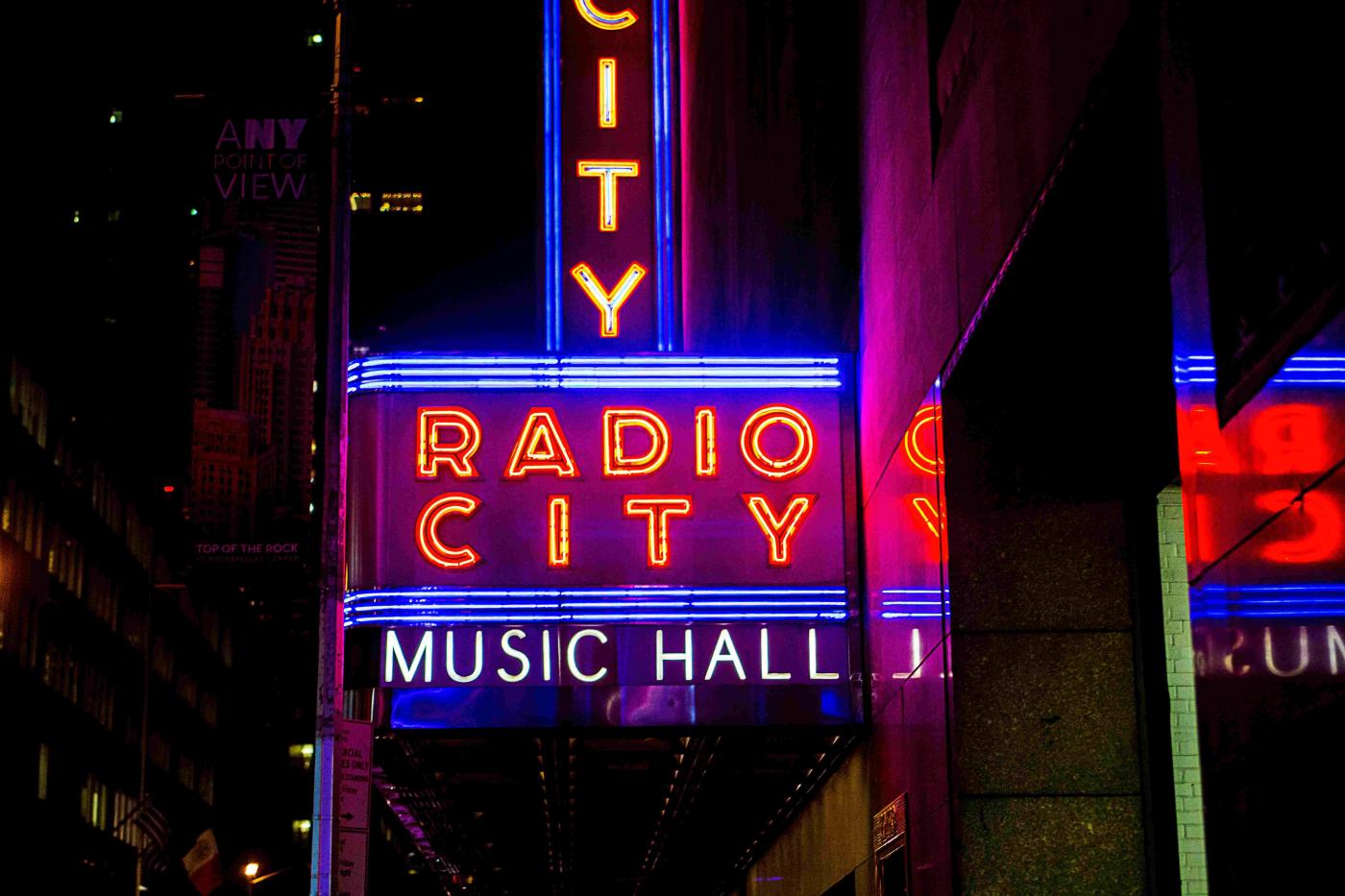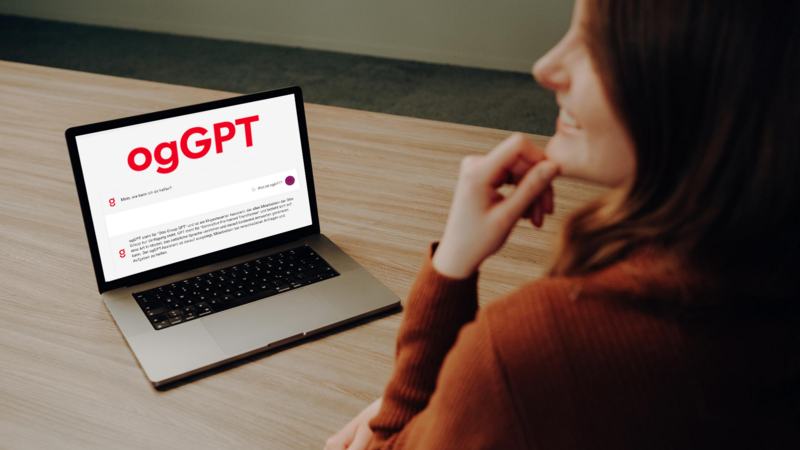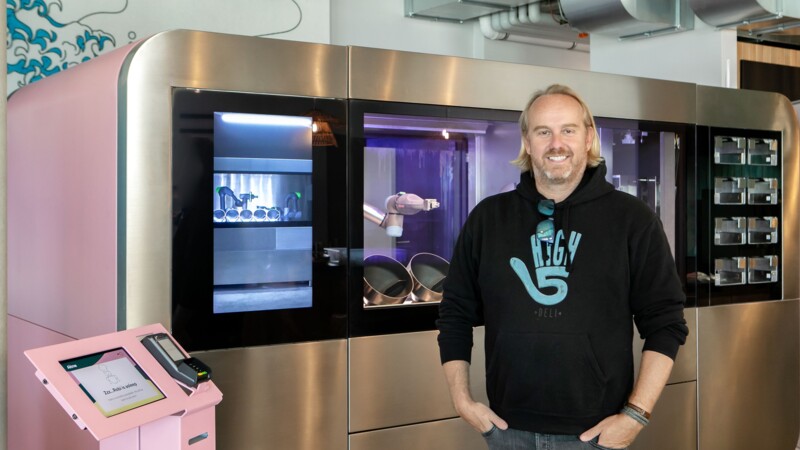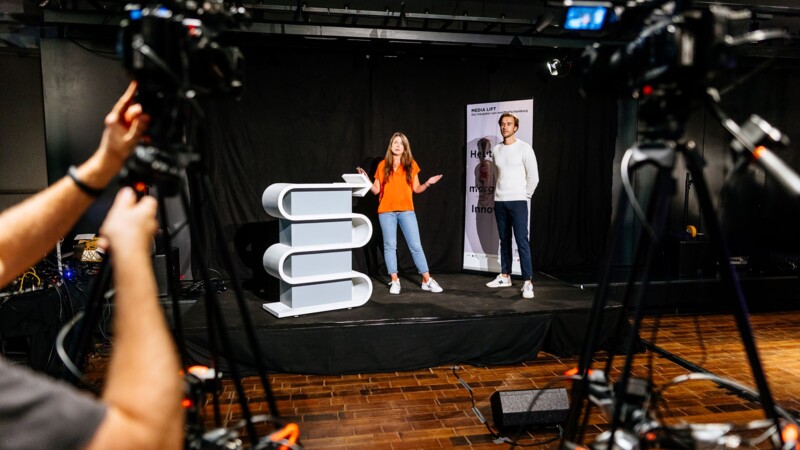The Rock! Radio Helgoland went back on air in March. "It is probably the first radio station worldwide that is controlled and presented exclusively by artificial intelligence," according to the website, which also lists the presenter, their CVs and photos. However, the caption says: "There are no presenters, there is only AI. The descriptions are also AI-generated. This is how 'she' imagines the presenters of a small island radio station." Matching photographs were created using the Random Face Generator website. Laufenberg specifies the subject of the programme and adds a few keywords. "The keywords island, Wadden Sea and Heligoland, Hamburg, Schleswig-Holstein and Lower Saxony were added to a programme entitled 'Meer geht immer'. The AI then searches the usual news agencies and selects four, top priority news pieces," Laufenberg said.
"Hamburg Airport is back to normal operations now that the kidnapping has ended (on November 5, 2023)," said the newscaster of the entirely web-based The Rock! Radio Helgoland station. However, this particular newsreader is not even real, but is on air thanks to artificial intelligence (AI) and based on ChatGPT. This is the brainchild of Thore Laufenberg, who turned the idea into a radio station after launching Radio Helgoland with his colleagues in 2017. Almost three years later, coronavirus put paid to their efforts, Naturally, differences arose about the content and how to grapple with the pandemic. "I had given up on radio, but then ChatGPT came along," said Laufenberg, who wrote his first software programme at the age of 12 and now works as a freelance IT architect. "I thought that ChatGPT should be able to prepare the programme as I would. It should choose the topic of a programme and then select news and music to go with it. And it actually worked."
AI-generated presenter CV

Cloning real presenters' voices
Another programme is used to convert the news into radio speak and adds snippets announcing the next music track. Then the voice generator takes over. They are now so good that they can hardly be distinguished from real people, Laufenberg remarked, adding: "We have also cloned real presenters' voices and even those of our former weather forecaster, Molli, who has sadly passed away. That was his family's wish." Laufenberg says his work is largely done now that ChatGPT has been adapted to The Rock! Radio Helgoland. AI does the day-to-day business and broadcasts entirely autonomously." However, Laufenberg, 54, still holds the reins in terms of press law.
Amusing mix-ups
But just how error-prone is AI? "As the reports come from news tickers, the facts are reliable and the abbreviation and rephrasing usually works well," said Laufenberg. AI has made one mistake so far and brought Hendrik Wüst, the incumbent prime minister of North Rhine-Westfalia, into play as a possible candidate for the German chancellorship. However, only few voters actually know him, a Forsa survey found. "The shortened report read: 'Many Germans have never been to the desert' instead of 'Many Germans don't know Wüst.'" The mistake caused lots of hilarity.
Choice of no AI or no local radio station
Reactions to AI radio are split between those who want real-life reports about e.g., lobster fishing, and technology fans who are following the use of AI with keen interest. "I share both opinions. But there aren't enough people on the island for a traditional radio station. So, Helgoland has to opt for either automated radio or none at all," said Laufenberg. Together with his father and radio veteran Frank Laufenberg, he is now aiming for a mix of both worlds. The duo hopes to come up with a new programme. "My father will comment on music played on a good old record player. It's all very old-fashioned."

How personalised radio works
Is personalised radio the next step? "Absolutely, I'm already working on it," said Laufenberg. Individualised web radio programmes are the way forward, said the father of five. "In other words, a programme that is tailored to the listener's personal taste in music, interests and activities and, for instance, plays traffic news for the exact route they are navigating." Laufenberg is enthusiastic about the technical possibilities of AI. However, there is a danger of biased information. "Staying increasingly in your own bubble is the bane of our time. And it can become a social problem, if AI spreads fake news." AI that analyses topics from different angles might help counteract this situation. "Even in the era of AI, it is our responsibility to provide the most comprehensive information possible."
ys/pb
Read the other parts in our AI series:
1) Hamburg clearly an AI hotspot, says Alois Krtil
2) AI Summit 2023 focuses on doom or boom aspects
5) Europe to rival U.S. and China with 'Responsible AI"?
Sources and further information
More
Similar articles



